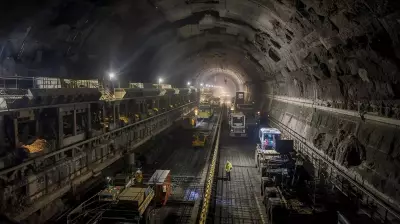
A startling new report from Gallup has uncovered a troubling reality about the American workforce: only 40% of working adults currently hold what can be classified as "quality jobs." This revelation raises serious questions about economic stability and the future of employment in an era of rapid technological change.
The Quality Job Gap: What the Numbers Reveal
The comprehensive study, conducted in collaboration with Amazon, examined employment conditions across the United States. The findings paint a concerning picture of the modern workplace:
- Just 2 in 5 American workers enjoy stable, well-compensated positions
- The majority face uncertain employment conditions and inadequate benefits
- Job satisfaction levels show significant decline compared to previous decades
AI's Double-Edged Sword: Threat and Opportunity
As artificial intelligence continues to transform industries, experts are divided on its long-term impact. While some fear widespread job displacement, others see potential for creating new, higher-value roles.
"The integration of AI into workplaces presents both challenges and opportunities," notes the report. "Workers who adapt and upskill will likely thrive, while those resistant to change may find themselves left behind."
Global Implications: Lessons for India and Beyond
The American employment crisis serves as a cautionary tale for developing economies like India. As technology reshapes global job markets, countries must prepare their workforce for the coming changes:
- Invest in continuous education and skill development programs
- Create policies that support workforce transition and retraining
- Foster partnerships between industry and educational institutions
- Develop social safety nets for workers in transitioning industries
The Path Forward: Building a Resilient Workforce
Experts emphasize that addressing the quality job deficit requires coordinated effort from governments, educational institutions, and private sector leaders. Key recommendations include:
"The future of work isn't just about creating jobs—it's about creating good jobs that provide dignity, security, and opportunity for growth," the report concludes.
As automation and AI continue to advance, the definition of quality employment may evolve, but the fundamental need for stable, rewarding work remains constant across all economies.





